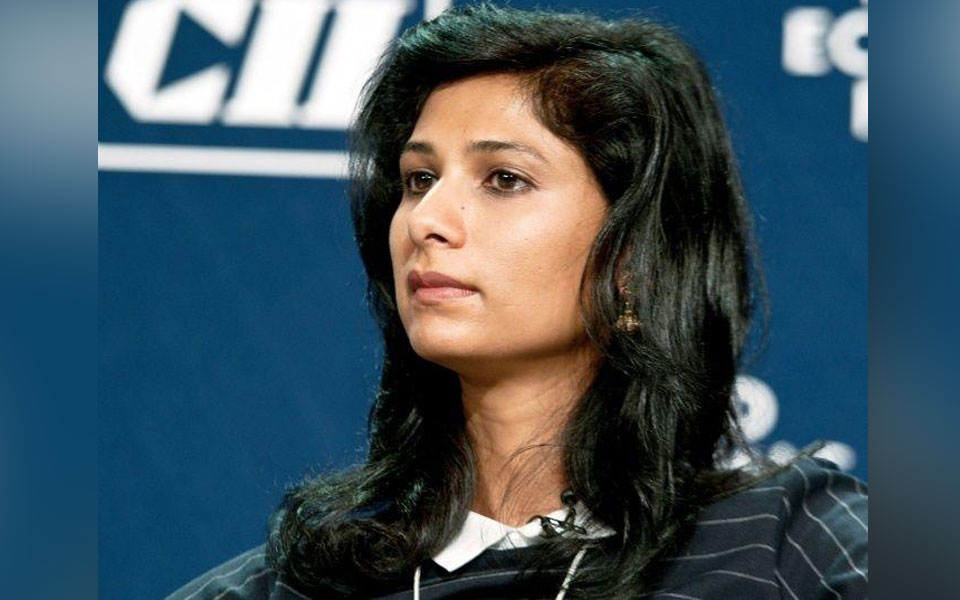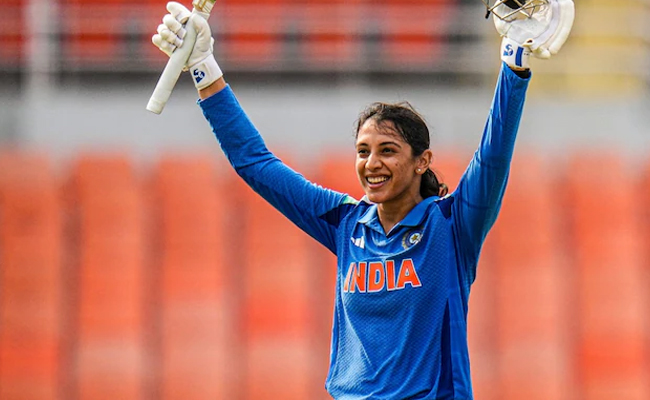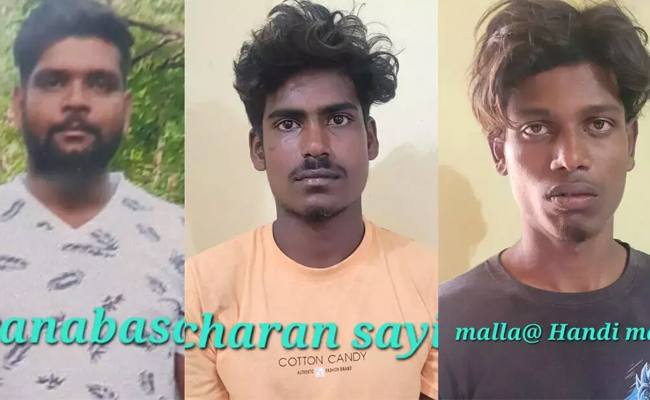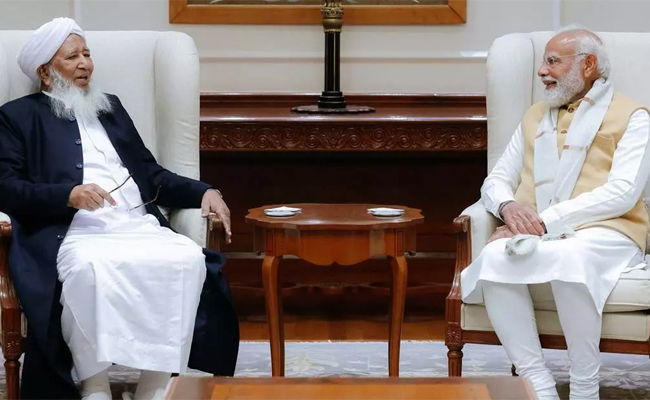Interview with John Zwaanstra Professor of International Studies and of Economics, Harvard University
This interview was first published on December 22, 2017. Business Standard is republishing it as Gita Gopinath has been appointed Chief Economist of IMF today, October 1, 2018.
Demonetisation was not a good idea and the time should have been utilised instead to fine-tune the goods and services tax (GST) before it was introduced, said Gita Gopinath, John Zwaanstra Professor of International Studies and of Economics at Harvard University, in an interview with Advait Rao Palepu. Rising oil prices are emerging as a big challenge for the country, she said while she was in Mumbai to deliver Exim Bank's commencement day lecture. Edited excerpts:
Was demonetisation a good move?
No. I don’t think I know a single macro economist who thinks that this was a good idea. And, it’s not something I think should be done for a country such as India and the level of development it has. Japan has the highest cash per capita, way more than India. The cash in circulation, relative to the gross domestic product (GDP) for India was 10 per cent, whereas in Japan it is 60 per cent. That is not black money; that is not corruption.
How do you see the disruption that demonetisation, and the GST has caused in the short term? Would it be beneficial in the medium to long term?
I view the GST very favourably because that is a real reform. It is a way of formalising the economy. It is a very effective way of ensuring tax compliance and makes it harder to earn black money. But obviously it is going to take some time to smooth out; the implementation again has been disruptive. Which makes me wish they hadn’t done demonetisation is then you could have used that time to have brought in GST smoothly.
Do you think policy making in India should be made more transparent?
What needs to be done generally for policy in India is just better data. It’s not great when everybody, everywhere, seems to be suspicious of the GDP numbers. For instance, I am working on a paper that is trying to basically answer the question: What was the impact of demonetisation in the economy? And the data hurdles are immense, in terms of what kind of data you have to measure things. Different parts of India were affected differently by the cash crunch. So, for instance, at the minimum, suppose you have a state GDP per capita, and you would want it at a quarterly frequency, which doesn’t exist. It’s just basic stuff that doesn’t exist.
Could you explain some of the policy implications of your research work on a country’s trade dependency on the dollar?
I think policymakers didn’t realise it, but kind of indirectly, they actually do obsess about the currency, relative to the dollar. Most emerging countries’ central bankers do look at this. But that is what the implication would be. Usually, policymakers might pay attention to what they call a “trade weighted exchange rate”. And what my research says is that you want to pay attention to the exchange rate relative to the dollar, doesn’t matter who you trade with or how the exchange rate moves one way or the other.
What are the trends you see in commodities, for 2018, especially that given oil prices have risen to $63 a barrel?
I think that is an important risk factor for India, because it weighs very heavily on monetary policy and fiscal policy. I do not believe it will get close to $100 a barrel, I think all projections for it are in the $60-$70 range, because there are lots of other supplies. But that wonderful era of very low commodity prices is now in the past. And so this is going to be something that the government and RBI will have to grapple with. I think there is going to be a lot of frustration. Inflation expectations usually tend to be quiet sensitive to food prices and fuel prices. And so even if the inflationary pressure on the economy, as a whole, is not that high, if people notice that when they are buying stuff that they are paying more for food, it shows up in inflation expectation numbers.
courtesy : business-standard.com
Let the Truth be known. If you read VB and like VB, please be a VB Supporter and Help us deliver the Truth to one and all.
New Delhi (PTI): Star batter Smriti Mandhana, who played a pivotal role in India's historic 2025 Women's World Cup triumph, was named the BBC Indian Sportswoman of the Year for 2025 at a glittering function here on Monday.
Chess prodigy Divya Deshmukh won the Emerging Player of the Year award, for her historic FIDE Women's World Cup triumph at just 20.
Preethi Pal was named the Para-Sportswoman of the Year, for winning two bronze medals at the 2024 Paris Paralympics in track and field, while Anjali Bhagwat was honoured with the Lifetime Achievement Award, recognising her pioneering career as India's first woman shooter to reach an Olympic final and her trailblazing success on the world stage.
Mandhana, who is currently touring Australia with the Indian team for multi-format bilateral assignments, said in a video message: "Thank you BBC for giving me the awardfor Best Sportswoman of the Year. 2025 was a special year for women's cricket, especiallytowards the end we had a World Cup and I'm happy I could contribute and help India win matches.".
At 29, the left-handed batter is already among the game's greats, with the second-highest number of centuries in women's One Day Internationals and ranking third in total runsscored among current players worldwide.
Hailing from Sangli city in Maharashtra, the affable Mandhana was inspired by her father and brother, both of whom played cricket at the district level.
In September last year, she made a 50-ball hundred against Australia – the fastest 50 over international ton (men and women) by an Indian in the format, breaking Virat Kohli's record.
The award winners were decided by a distinguished grand jury comprising Leander Paes, Deepa Malik, and Anju Bobby George.
Praising the athletes' achievements CEO of BBC News, Jonathan Munro said: "Congratulations to this year's winners who showcase the very best in sporting excellence. The BBC World Service is committed to bringing such stories of human endeavour and outstanding success to audiences across India and around the world.".
Additionally, the ceremony also celebrated a wide spectrum of talent and impact, recognizing star performers and changemakers for redefining the landscape of Indian sport.
BBC Star Performers of the Year 202.
• Indian Women's Cricket Team: for their historic World Cup victory.
• Ekta Bhyan, Deepthi Jeevanji and Preethi Pal: for their trailblazing performances at the World Para Athletics Championship.
• Indian Women's Cricket Team for the Blind: for their inspiring World Cup victory.
• Indian Women's Kabaddi Team: for their smashing victory in World Cup.
.
BBC Changemakers of the Year 202.
• Indian Women's Ice Hockey Team: for breaking barriers in a non-traditional sport.
• Rajbir Kaur: Indian field hockey player and former captain of the women’s national team.
• Savita Punia: Indian field hockey player and current member of the national team.
• Paani Devi: recognised for her impactful contribution to grassroots sport.





